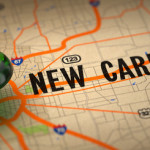An impaired hearing ability due to harmful conditions at the workplace is unfortunately nothing new and if that’s what you suspect is happening to you, you should be seeking an injury lawyer as soon as possible. However, what most of us do not know about occupational hearing loss is the fact that it is one of the most common forms of work-related injuries/illnesses that affects workers in not only the UK, but also pretty much everywhere.
As any solicitors will tell you, the saddest part about occupational hearing loss is that the employees in most situations do not even realise that they are hurting their ears. By the time they finally do, the hearing loss becomes permanent in most situations. It’s hard to realise that something is wrong in a workplace, when you have become used to the abuse after years of working under harmful circumstances. To make sure that you are not making the same mistake as others before you at the expense of your hearing, we have made this list of ten jobs which are known to exposes workers to more than 85 decibels of noise on a regular basis; something that can potentially impair your hearing permanently.
Ground Staff at Airlines
If you are a pilot or part of the cabin crew, this shouldn’t apply to you since they are usually not exposed to long term loud engine noise from planes, which can reach and even exceed 130 dB at times. Unfortunately for the aircraft maintenance crew, baggage personnel and the airline ground control, that is not quite the situation. This is why their jobs are classified as being one of the loudest and consequently, one of the most detrimental to the human sense of hearing. They are to be at all times protected with certified ear protection and even a moment’s mistake can cause significant damage to the ear drums.
Construction Work
Drill machines, wrecking balls and other large disassembly units make a lot of noise, so it should come as no surprise that construction workers made it onto the list. They work in places with constant noise that exceed 100-120 dB on a regular basis. Even though ear-protection is something that every company or agency in charge of the operation is legally bound to provide to their workers, the equipment doesn’t always work as well as they should. As a result, a large portion of the hearing-loss related claims made from law firms have a client base of construction workers.
Mining
Not unlike construction workers, miners must also handle high levels of noise on a daily basis. This, coupled with the fact that they often have to work with extremely noisy machinery in closed off, small quarters under the ground where everything is amplified, doesn’t bode well for their hearing. Work-related hearing loss is very common in miners even in this day and age.
Call-Centres
It might seem like a somewhat surprising entry on this list because people do not generally consider call-centre employees to be people who are exposed to excess noise. Nevertheless, acoustic shock is a very real problem that plagues workers at call-centres, reception desks and other fields that require wearing a headset for long periods of time. It occurs as a result of exposure to frequent bursts of high-frequency and/or high-intensity noise via the headsets and if left unchecked, can even cause permanent loss of hearing. If you are an unfortunate victim of such an incident, consult your personal injury solicitor immediately because you are eligible for compensation.
Nightclub Workers
Most people go to nightclubs for a limited amount of time, but if your job required you to be inside a nightclub for eight hours or more every day, hearing loss shouldn’t come as a real surprise. The music is always loud in almost every nightclub and in spite of it being dangerous for obvious reasons, nobody really wears ear protection inside the club. Long-time exposure can and most often will lead to hearing loss and maybe even some additional symptoms.
Subway Conductors
The characteristic screeching noise of a subway car putting on the brakes is as inevitable as anything because there has actually been a lot of conscious effort put into reducing the intensity. Composite brake shoes and well lubricated tracks have managed to reduce the noise to a certain degree, but they can still affect your ears negatively if you are constantly exposed to the noise and that’s exactly what makes the job of the subway conductor a dangerous one, as far as hearing loss is concerned.
The Military
Regular gunshot produces a sudden bolt of noise that ranges from anywhere between 140 – 190 dB and that’s just one shot! Imagine hundreds of those shots being fired at close vicinity near you to have a virtual idea of what the military has to go through. This is not including the noise of grenades, rocket launchers and a host of other ear-splittingly loud weaponry with which the military deals regularly. Hearing problems in veteran soldiers and other military workers is extremely common because of aforementioned reasons.
Industrial Workers
Working in a factory is almost always going to get very loud and it doesn’t help that noise becomes ever so much more damaging for the ears in an enclosed environment. Working regularly in close proximity to ship-building machines and car assemblers that easily reach and cross 100-120 decibels will most definitely result in hearing loss without the proper protective equipment. Do not hesitate to call your lawyers if you ever suspect that you are losing your hearing because of faulty equipment or unsuitable work conditions inside a factory. The sooner you reach out to a legal representative, the better your chances are of getting the compensation you deserve, not to mention, stop the hearing loss before it’s too late.
Logging
Chipping away at trees with an axe is not efficient anymore and therefore, all professional lumberjacks use chainsaws to cut them down these days. 120+ decibels is easily reached while using an industrial chainsaw, and with that comes the chance of causing permanent ear damage.
Traffic Control
Everyone knows how loud the traffic can get during the busy hours in a city, especially when people start honking their horns impatiently. While some of us have the option of shutting a portion of that noise down by pulling up the windows and putting on music, traffic controllers cannot do that. Due to the very nature of their work, they just cannot shut out the noise and must remain in the middle of it all for hours at a stretch. Unfortunately, there’s very little that can be done in this situation as general ear-protection would be in direct violation of the work that they were hired to do in the first place.
While people working in the ten job fields mentioned on this list are usually the ones who seek lawyers for claiming compensation due to workplace-related hearing loss, keep in mind that you could still be eligible for making a successful claim even if your particular field of work or applicable situation is not mentioned here. Only an experienced legal solicitor can tell you about the merits of your claim, so make sure that you are being represented by someone such as Roper James Solicitors; who are one of the most well-known legal institutions in the city.








